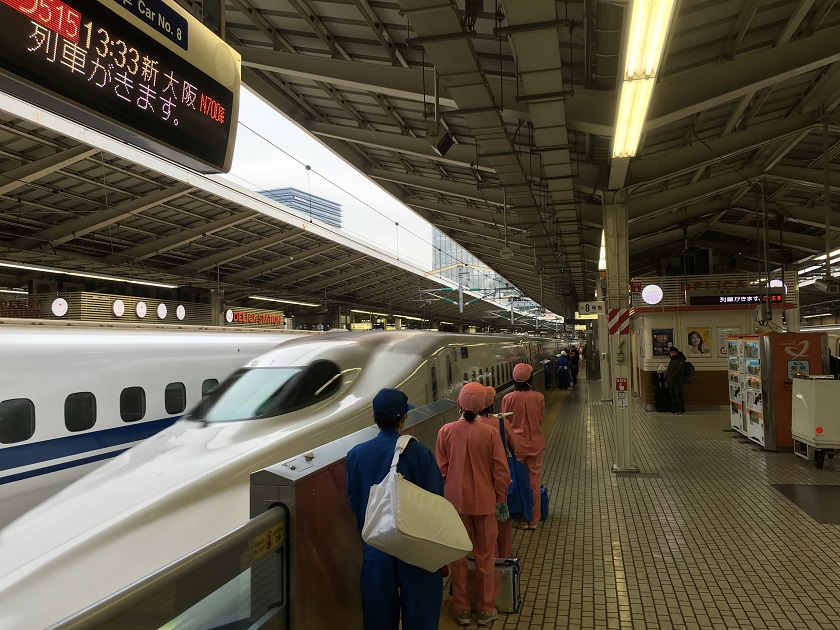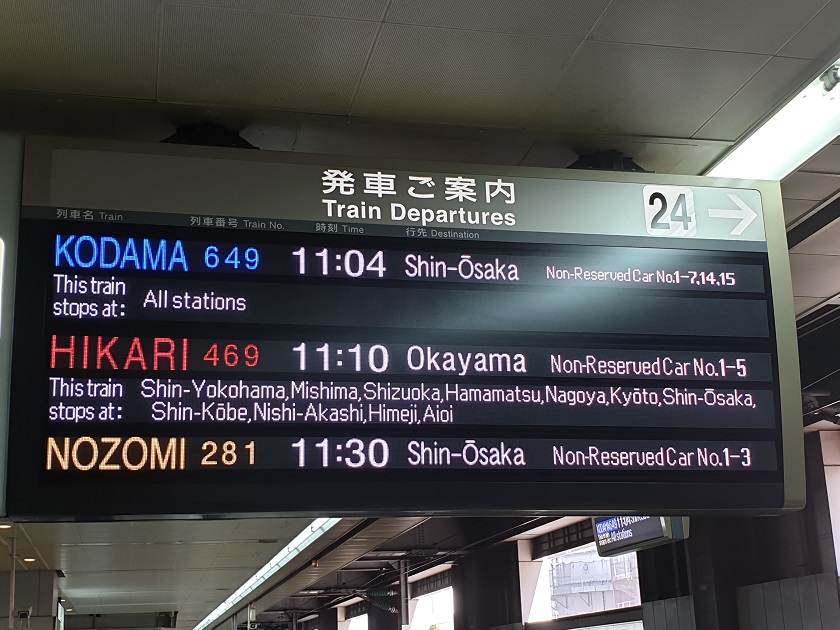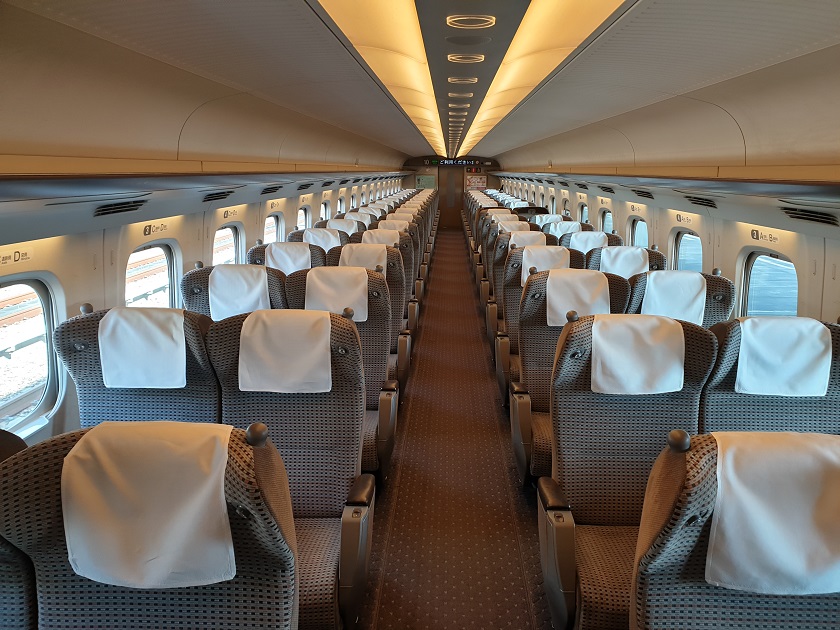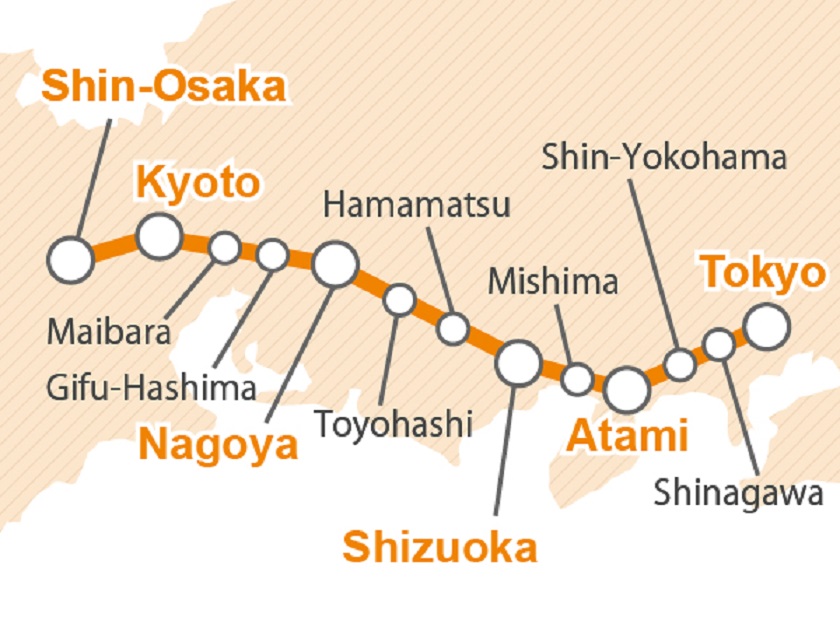Learn about the Tokaido Shinkansen, the JR Pass validity, route details, train services and everything else you need to know.
Table of contents:
What is the Tokaido Shinkansen?

Brief history of the Tokaido
The Tokaido (東海道) has its origin in old feudal Japan, where it was the most important trade route connecting Tokyo, Kyoto and Osaka. The route follows the coastline of Japan and this is also where the name comes from and transforms roughly to Eastern sea route (going from Tokyo yo. There used to be 53 stations or stops along the route, where travellers could reset for the night, fill up on supplies and trade. Among its travellers was legendary ukiyo-e master Hiroshige who made a painting of each of the 36 Tokaido stations, where travellers would stay and rest for the night. Many of them featuring Fuji-san.
In 1964, the Tokaido Shinkansen line was opened, just in time for the 1964 Summer Olympics. It was the first bullet train line in the world connecting Tokyo to Osaka at 210 km/h (130 mph). Current day, bullet trains on the Tokaido Shinkansen line reach up to 300 km/h (186 mph), connecting Tokyo to Kyoto in just 139 minutes and Osaka in 160 minutes, with even faster speeds planned for in the future.
Train services on the Tokaido Shinkansen
Nozomi
The fastest service on the Tokaido Shinkansen, the Nozomi services only stops at the most important stations like Tokyo, Nagoya, Kyoto and Osaka. Note that the JR Pass does not include the Shinkansen
Hikari
The Hikari is the same train as the Nozomi but make a few more stops along the route. Only stopping at major and most important stations. The time difference with the Nozomi is often minimal. In addition to the Nozomi stops, the Hikari stops at stations like Odawara (for Hakone), Atami and Shizuoka.
Kodama
Kodama services stop at each station along the Tokaido Shinkansen, often used as a shuttle service between smaller and larger stations. It is common for longer stretches to use a high speed service like the Nozomi or Kodama, then change at a bigger stop and get on the Kodama.

Can I use the JR Pass on the Tokaido Shinkansen?
The JR Pass is valid on the entire Tokaido Shinkansen and can be used on both the Hikari and Kodama train services. The Hikari takes about 159 minutes to travel between Tokyo – Kyoto, just 19 minutes more than the Nozomi.Green Class on the Tokaido Shinkansen

Map of the Tokaido Shinkansen line
Here is a map of the Tokaido Shinkansen line with the most important stations. For a full rail map of Japan, see the JR lines map.
Map with the main stations on the Tokaido Shinkansen
Future of the Tokaido Shinkansen
The future of the Tokaido Shinkansen looks bright, as ridership is growing and expected to reach over half a million passengers on a daily basis by 2020. To cope with the demand, JR-Central is introducing a new Shinkansen. Called the N700S class Shinkansen, being able to travel at higher speeds and better conform, the N700S will make travelling on the Tokaido even better than it already is.WiFi on the Tokaido Shinkansen
JR Central is introducing free WiFi on the Tokaido Shinkansen, so passengers who travel between Tokyo and Osaka. The full roll-out is expected to be completed before the Olympics in 2020 and will be available across the entire JR Central Shinkansen fleet, spanning 2,096 cars on all the 131 trains in service.
Should you wish to make use of unlimited WiFi with a guaranteed connection, then we recommend using a Pocket WiFi in Japan and can be connected to any WiFi capable device.
.jpeg)
.png)


